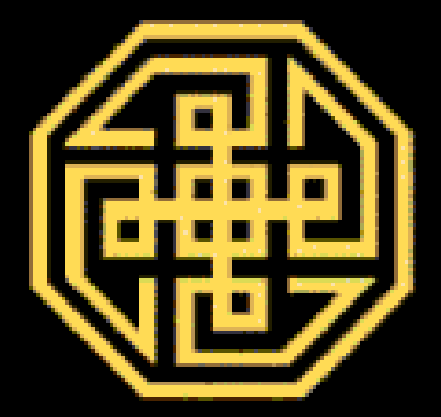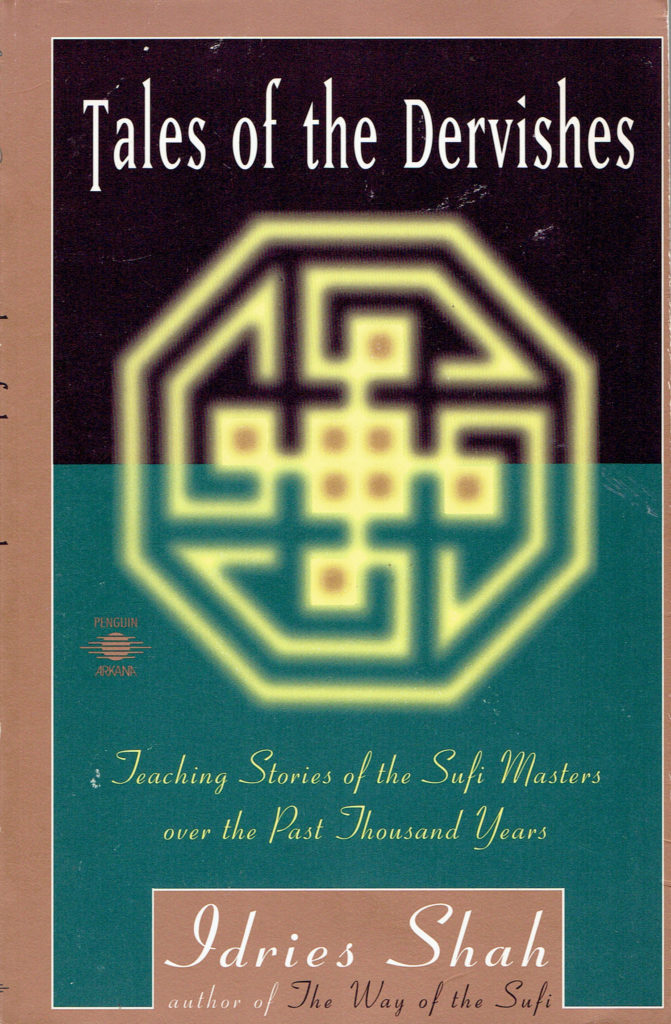HU – the Essence of Essence, Secret Name of God, Ground of Existence
‘He’. Hu stands for the Essence Itself. It stands for ‘He Who is Absent’. Dhikr of ‘Hu’ is one of the most powerful words of Remembrance. When the lover is annihilated in the Essence Itself, there is no duality, no dhikr of ‘Hu’ – only Oneness, only the Beloved. When ‘He’ is no longer absent, who is there to call to? The Principle insofar as It is Itself; the Essence beyond the Qualities. The mystery of Ipseity, of Essentiality, of Aseity. – Murshid F.A. Ali El Senossi
Ipseity: The quality of being oneself or itself; the essentia] element of identity.
Aseity: The property by which a being exists in and of itself, from itself, or exists as so-and-such of and from itself.

In Sufism Hu or Huwa is the pronoun used with Allah or God, and is used as a name of God. Allah Hu means “God, Just He!” In Arabic Allah means God and with Hu, as an intensive added to Allah, means “God himself.” Hu is also found in a variant of the first part of the Islamic credo, wherein lā ilāha illā Allāh “there is no god but God,” is shortened to lā ilāha illā Hu(wa) meaning “There is no God but He”. – Wikipedia
Hu means the intimate connection with the Divine Presence that can be found within every human being. – Relax into the Remembrance of Hu
The universe was created with a sound, a musical note: ‘OM’ according to Holy Scriptures in Hinduism, ‘HU’ according to Sufi mysticism. – International Sufi School
Each time we breath: hhhu, hhhu, hhhu – this hhhu is the name of Allah, Hu. In Judaism it’s Ya Hu Wah, in Islam, Ya Hu. – Ansari Qadiri Rifai Tariqa
The Breath of HU
What does the word Hu mean in Hu-man? – Hu, which is not a person but a function of the universe, drew its first breath; it sounded similar to Hu’s name (Hu And Sia are the male and female forces of life representing the creative forces of the universe.). The name mimicked the sound of expelling breath or the wind. With each breath expelled, creation took place. Later, falsely translated by the Council of Nicaea as the word of God. But the more appropriate term is creative frequencies, not the language of men.
The Sufis use the name “HU to refer not exactly to the brilliance, but to the Absolute, the ultimate ground and nature, the void before it is conceptualized as void or space. So we can more accurately say that the ultimate “Hu” is actually beyond color and consciousness. The Absolute is the unity before manifestation, while the brilliance is the manifest unity. We can say that the first manifestation of the Absolute is the brilliance, the inner intelligence. The ultimate is so mysterious that we can apprehend only a brilliance, a radiance as we approach it. This pure brilliance is the first intelligence, the unity from which differentiation arises. It is the beginning. – A. H. Almaas

The Supreme Being has been called by various names in different languages, but the mystics have known him as Hu, the natural name, not man-made, The Only Name of the Nameless, which all nature constantly proclaims. The sound Hu is most sacred; the mystics call it Iam-e Azam, the name of the Most High, for it is the origin and end of every sound as well as the background of each word. The word Hu is the spirit of all sounds and of all words, and is hidden within them all, as the spirit in the body. It does not belong to any language, but no language can help belonging to it. This alone is the true name of God, a name that no people and no religion can claim as their own. This word is not only uttered by human beings, but as repeated by animals and birds. All things and beans Proclaim this nature of the Lord, for every activity of Life Express is distinctly or indistinctly this very sound. This is the Word mentioned in the Bible as existing before the light came into being, “In the beginning was the Word, and the Word was with God, and the Word was God.”
The mystery of Hu is revealed to the Sufi who journeys through the path of initiation. Truth, the knowledge of God, is called by a Sufi Haq. If we divide the word Haq into two parts, its assonant sound becomes hu ek, Hu signifying God, or truth and ek in Hindustani meaning one, and both together expressing one God and one truth. – Sufi Message of Hazrat Inayat Khan, Volume 2
For our work, the Diamond Approach, the HU represents the complete human being. It is the human individual who has integrated the two worlds, the spiritual world and the human world, in one’s realization. It is important that it is a human being, not just true nature, who has matured to the stage of completion, where the integration is of being true nature in the world of people.

The meaning of HU has to do with its design. It is composed of the word HU in Arabic, repeated four times as a cross. The cross is made by HU mirror reflected four times to come up with the design. HU in Arabic literally means “he” but it is used by Sufis to mean both divine essence and identity.
The HU design comes from a similar one that the Sufis used for a long time, particularly by the Naqshabandi Sufis. I took that design and used the mirror image of it, for this gives the correct reading of the Arabic word.

So the octagonal design represents the complete human being, who is a reflection of the divine essence or the absolute. The shiny black background represents the absolute, and the octagon is the human being who embodies it as the very substance of one’s personhood.
I chose the HU symbol for our work because the complete human being is the particular realization of the Diamond Approach. Our path is not just a matter of realizing the absolute, but of embodying it in our humanity.
Realization of being in the world but not of it. To be ‘not of it’ is the function of enlightenment or the realization. To be in the world, but not of it…that is the actualization…how to live it. That is the gold octagon. ‘Not of it’ is the blackness. The octagon is made out of the Absolute itself. The gold octagon in the language of the Diamond Approach is what we call the diamond pearl. – A. H. Almaas
And a couple of other notes from Hazarat Inayat Khan:
Aluk is the sacred word that the Vairagis, the adepts of India, use as their sacred chant. In the word Aluk are expressed two words, al meaning the, and Haq truth, both words together expressing God the Source from which all comes.
In the word Huma, represents Spirit, and the word mah in Arabic means water. In English the word ‘human’ explains two facts which are characteristic of humanity: hu means God and man means mine, which word comes from the Sanskrit Mana, mind being the ordinary man. The Two words united represent the idea of the god-conscious man ; In other words Hu, God, is in all things and beings, but it is man by whom He is known. Human therefore may be said to mean God-conscious, God-realized, or God-man.
The word Allah, which in Arabic means God, if divided into three parts may be interpreted as ‘the One who comes from nothing’.
The words om,omen, amen and ameen, which are spoken in all houses of prayer, are of the same origin; A in the commencement of the word expresses the beginning, and M in the midst signifies end; N the final letter is the re-echo of M, for M naturally ends in a nasal sound, the producing of which sound signifies life.
The Meaning of Hu by J. G. Bennett
We start with an impossibility. I want to speak about what can’t be said, and this I want you to take seriously; when I say that it can’t be said, I do mean just that. It can be talked about, but when one talks about it one is talking about an image, an idea or perhaps even nothing more than a lot of words. How far is it beyond words? If it were just one step beyond words, it may be that some sort of analogy, description or picture would help. I’m going to speak about Hu in the sense that the Sufis use this word; in the ordinary way in Arabic it means nothing, ‘he’, ‘she’, ‘it’, anything you like, it just tacks on to the ends of verbs and means ‘he’. It can be used in the most ordinary way in everyday Arabic conversation. But, it also means the ultimate, that which is entirely beyond all attribute, beyond anything that can ever be said. It also does mean the nearest of all. You’ve got Nejmeddin Kubra. His explanation of it I can start with. He said, ‘Every time we breathe, we say this. This “ah” of Allah is the essential reality of everything because everything that breathes, every breath, says this’. This is a way of expressing this immanence, the indwelling of this in everything. One cannot breathe without saying this. That’s how he explained it. That’s one way of feeling it and experiencing it. It is the very essence of our breathing, that means the very essence of our lives, the very essence of our being. But, for the Sufi, I think it is not so easy to take it that way alone. – Read the transcript
The Song of the Reed

Hearken to this Reed forlorn,
Breathing, even since ‘twas torn,
From its rushy bed, a strain
Of impassioned love and pain.
“The secret of my song, though near,
None can see and none can hear.
Oh, for a friend to know the sign
And mingle all his soul with mine!
‘Tis the flame of Love that fired me,
‘Tis the wine of Love inspired me.
Wouldst thou learn how lovers bleed,
Hearken, hearken to the Reed!”
Rumi
